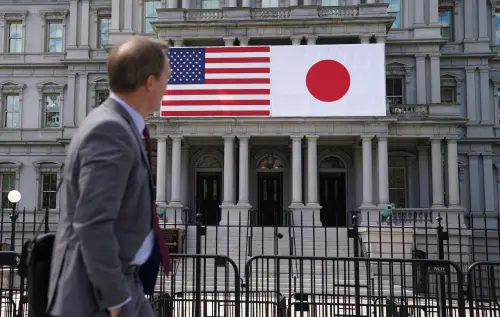It had never really left—what was widely referred to as the “Vietnam syndrome”–but it has now returned unmistakably, certain to exercise a major influence on American foreign policy during President Barack Obama’s second term in office. It is the belief, born of brutal experience during the Vietnam War, that never again will the United States gradually tiptoe into questionable wars without a clearcut objective, overwhelming military force, an endgame strategy and, most important, the support of Congress and the American people. In today’s world of terrorist threat and guerrilla war, the Vietnam syndrome means, if nothing else, a fundamental reluctance to commit American military power anywhere in the world, unless it is absolutely necessary to protect the national interests of the country. The Vietnam syndrome is a giant step away from hard-edged policies, such as President George W. Bush’s adventurous plunge into Iraq in 2003, and toward softer-edged policies, such as President Obama has pursued in his measured anti-Qaddafi approach to the Libyan revolution and his careful, arms-length-away attitude to the complicated mess in Syria.
The return of the Vietnam syndrome was most vividly illustrated by Obama’s appointment of Senator John Kerry as Secretary of State and former Senator Chuck Hagel as Secretary of Defense. Both men are loyalists, thoroughly devoted to the president, and they are Vietnam War veterans, scarred physically and psychologically by their experiences in a lost war. Both won medals for gallantry in combat; both were also awarded Purple Hearts for wounds suffered during the war. Between the two, they share five Purple Hearts, testimony to their wartime sacrifice.
Kerry was a naval officer, who volunteered for service in Vietnam. His duty was in the torrid Mekong Delta, riding Swift Boats through elephant leaf covered back water rivulets, which hid an enemy always preparing a surprise attack. It was, without doubt, one of the most dangerous assignments in the war. He still carries shrapnel in one leg. Kerry left Vietnam after several months, convinced that his country had made a dreadful mistake and that it was time to pull out of the war. When he returned to the US, he testified before the Senate Foreign Relations Committee in April, 1971, and demanded an “immediate withdrawal” of American forces from Vietnam. “How do you ask a man to be the last man to die in Vietnam?” he asked. “How do you ask a man to be the last man to die for a mistake?” His questions resonated across the country, and he rose to national prominence as an anti-war veteran. He remains anti-war, especially anti-dumb wars that waste American lives and resources.
Hagel was an enlisted man in the US army, fighting alongside his brother, Tom, near the Cambodian border during the worst days of the war. That two brothers would be in the same battle would be exceptional. That each would then save the other’s life would be totally extraordinary, but it happened in April, 1968. Few American families have been more generous in their contributions to the Vietnam war, few more fortunate. Both sons survived their wounds. When Chuck Hagel was being medevaced out of the battle, he turned to an aide and said: “If I ever get out of this, and I’m ever in a position to influence policy, I will do everything I can to avoid needless, senseless war.”
Should Hagel be confirmed by the Senate, where he spent twelve years representing Nebraska as a maverick Republican, he will have the opportunity to influence policy. Kerry will have the same opportunity. As a liberal Democrat from Massachusetts, he served in the Senate for a quarter-of-a-century and, in 2004, ran unsuccessfully for president.
Both he and Hagel know they can influence policy–and they will, advocating a moderate line on Iran, Afghanistan and such turbulent troublespots as the Arab upheaval in the Middle East–but they also know that only the president can and will make the final decisions about war and peace in 2013. But what’s interesting now is that Obama’s two principal advisers on foreign affairs are veterans of a most unhappy war in Vietnam; and as they glance over the globe’s many problems, they are more apt to advance non-military solutions—to ask, for example, how the US can avoid other long, costly, messy wars, such as the ones in Vietnam and Afghanistan, rather than imagine that, with another heavy expenditure of arms and troops, the US can win the wars, big and small, that currently challenge the country.
Obama has often said that it’s time for “nation-building at home.” Kerry and Hagel agree. The meaning may be that Vietnam has returned once more to influence the US to be mindful of the powerful lessons of recent history. Whether the issue is Mali, or Afghanistan, or the South China Sea, it may be better for the US to keep its powder dry until it can be proven, beyond a shadow of a doubt, that it must intervene. If by chance the president forgets that lesson, unlikely though that be, he has Kerry and Hagel nearby to remind him of its relevance.



Commentary
It’s Called the Vietnam Syndrome, and It’s Back
January 22, 2013